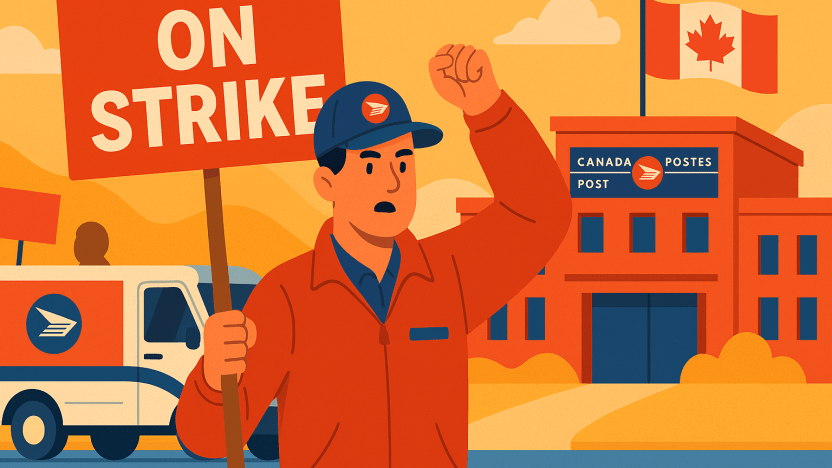Over 50,000 postal workers in Canada have been on strike since November 15, 2024, demanding better wages and working conditions. This labor action has led to widespread disruptions in mail and parcel services, particularly affecting the upcoming holiday season.
Overview of the Canada Post Strike
The ongoing strike by over 50,000 postal workers in Canada began on November 15, 2024, after negotiations between the Canadian Union of Postal Workers (CUPW) and Canada Post failed to reach an agreement. This labor action has significant implications for mail and parcel delivery across the country, particularly as the holiday season approaches.
Key Issues at Stake
The key event that triggered the strike was the failure to reach an agreement on November 14, 2024. The CUPW announced the national strike starting at 12:01 a.m. ET on November 15, 2024, due to unresolved issues related to wages, working conditions, and job security.
Wage Increases and Working Conditions
CUPW is demanding a 24% wage increase over four years, alongside improvements in working conditions, secure pensions, and job security. In contrast, Canada Post has proposed an 11.5% raise over the same period. The union argues that current wages do not keep pace with inflation and are insufficient for workers to maintain a decent standard of living.
“We definitely don’t want our jobs to become a race to the bottom. We want solid jobs, living wages, decent benefits, and the ability to retire with dignity as well”
Tracey Langille, president of the Canadian Union of Postal Workers Local 548
Financial Context
Canada Post has reported substantial financial losses—over $3 billion since 2018, including a $748 million loss in 2023. The company attributes its financial woes partly to declining mail volumes and increased competition from low-cost delivery services that rely on gig workers. This competition has eroded Canada Post’s market share, compelling it to seek cost-cutting measures such as reducing full-time staff and increasing part-time positions.
Impact of the Strike in Canada
Service Disruptions
The strike has effectively halted mail and parcel deliveries across Canada, affecting millions of Canadians and businesses. Reports indicate that nearly 10 million parcels are impacted, disrupting essential services like bank statements, passports, and holiday shopping deliveries. The timing is particularly critical as the nation enters the busy Black Friday shopping period.
Broader Economic Implications
The strike’s repercussions extend beyond Canada Post itself. Small businesses, charities, and remote communities reliant on postal services are facing significant challenges due to service interruptions. The federal government has appointed a mediator to facilitate discussions between CUPW and Canada Post, but progress remains limited.
The Gig Economy Context
A significant aspect of this strike is its reflection on the broader labor market trends in Canada. The rise of gig work poses challenges for traditional employment models.
Many private delivery firms classify their workers as independent contractors, which allows them to evade labor regulations and lower costs at the expense of workers’ rights. CUPW is advocating against this “gigification” of labor within Canada Post, emphasizing the need for stable employment with fair wages and benefits.
Labor Minister Steven MacKinnon emphasized the need for both parties to reach an agreement quickly to minimize disruptions. Public sentiment is mixed, with many Canadians expressing frustration over the delays, while others support the workers’ demands for fair wages and better working conditions.
Recommendations
During the strike, individuals and businesses are advised to consider alternative courier services for urgent deliveries. Additionally, online transactions and digital communications are recommended to mitigate the impact of the postal service disruption.
Conclusion to the strike in Canada
As the strike continues into its second week with no resolution in sight, it underscores critical issues surrounding labor rights, wage equity, and the future sustainability of postal services in Canada. Both sides remain entrenched in their positions, highlighting a growing tension between traditional employment frameworks and emerging gig economy practices. The outcome of this strike could set important precedents for labor relations in Canada moving forward.



